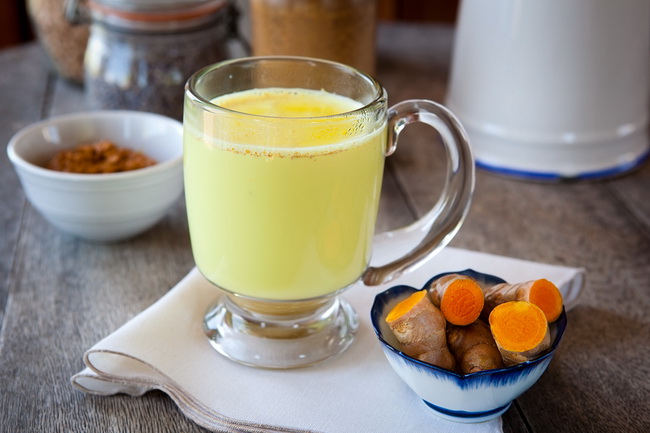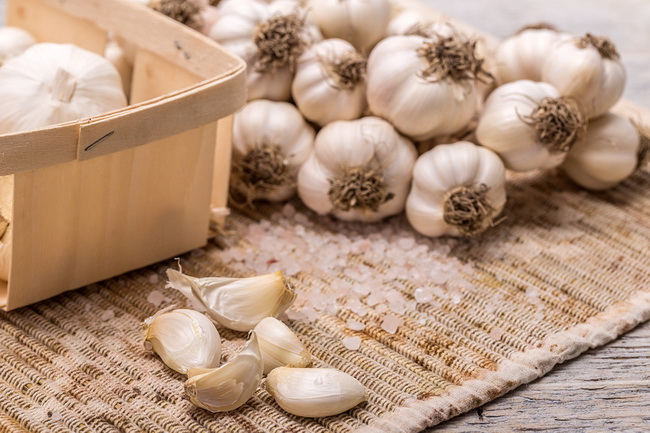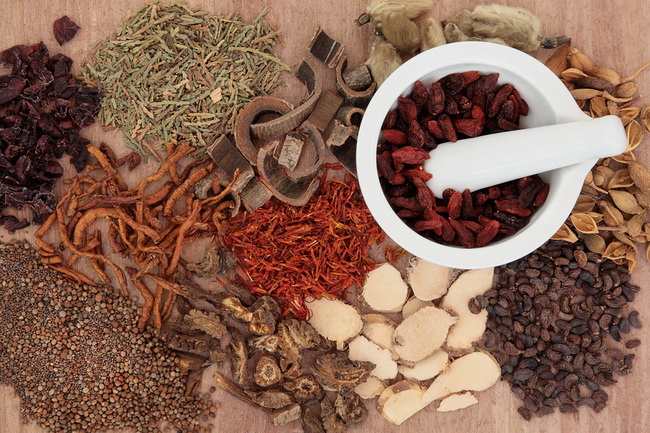- Make It Yourself Lavender Heart-Shaped Bath Bombs!
- 20 Things You Never Knew About “Down There”
- 12 Best Foods For Those Suffering From Arthritis Pain
- 12 Personal Hygiene Mistakes Almost Everyone Makes (Mom Never Told You About #4!)
- 15 Medicinal Plants And Herbs From The Cherokee People
- 12 Mind-Blowing Benefits Of Drinking Coconut Water During Pregnancy
- 12 Outstanding Winter Foods That Won’t Fatten You Up Like A Christmas Turkey
12 Effective Herbs to Fight Asthma Attacks (#5 is So Strange)

Photo credit: bigstock.com
One of the most frightening experiences in life is the inability to breathe. Everyone who suffers from asthma feels this regularly. Wheezing, coughing, gasping for breath becomes a regular way of life.
Asthma is a life-threating respiratory condition where the airway muscles contract and the mucus membranes produce excessive amounts of mucus, blocking the airways even more. Simple, everyday encounters with pets, dust or pollen can trigger a life or death struggle to breathe.
Most people with asthma rely on their inhalers to tablets but before these medications, people relied on herbal treatments. Although most doctors will scoff at herbal treatments, people used them successfully for generations.
One of the greatest benefits of using herbal treatments, rather than modern chemicals, is that herbs will strengthen your immune system. Herbs are loaded with vital minerals and vitamins that can improve your lung health as well as strengthen the immune system. Free from synthetic compounds, herbs are natural to the body, and have no side effects for most people.
If you are interested in a safer, more natural means of managing your asthma, talk to you doctor or naturopath about using some of the following 12 herbs.
1. Carom Seeds
These seeds are sometimes called Aiwain or Bishop’s Weed. Carom seeds are a mild bronchodilator, meaning they will dilate the bronchial tubes in the lungs, increasing your breathing capacity. There are several ways to use these seeds: For one, you can boil one teaspoon of carom seeds in a cup of water and inhale the steam. When it cools, you can also drink this tea. Alternately, you can place a small handful of seeds in a washrag or other type of clean cotton cloth and place in the microwave for a few seconds. When it is hot (but not hot enough to burn you), place the hot pack on your chest and neck, breathing as deeply as possible, until it cools. Repeat this every day until you get the desired results, then use as needed.
2. German Chamomile
Perhaps one of the most effective ways to prevent an asthma attack is through the use of German chamomile. There are several types of chamomile, but German chamomile (matricaria recutita) has strong antihistamine compounds that fight off allergic reactions, and therefore, asthma attacks. To get the most from this herb, be certain that you are consuming German chamomile and that you drink at least two cups of tea daily.
3. Ginger
Most people think of ginger as something that only works for nausea and vomiting, but ginger also reduces airway contraction and inflammation. Studies have shown that the compounds in ginger enhance the muscle relaxing effects of certain asthma drugs. If you are taking any prescription muscle relaxers, ask your doctor if adding ginger to your diet can improve their function. You can drink ginger tea, and make your own by boiling a few slices of fresh, organic ginger root in boiling water. You can also add more dried ginger to your meals.
Continue to Page 2

Photo credit: bigstock.com
4. Turmeric
This spice has been used in ancient Chinese medicine for thousands of years to relieve asthma and other breathing problems. Turmeric has antibacterial, astringent, antiseptic and carminative compounds that can be used to treat a wide variety of illnesses ranging from colds, flu, bronchitis, allergies and asthma. Talk to your doctor about how much turmeric you should consume for your particular condition.
5. Mustard Oil
This might seem strange, but if you are having an asthma attack, massaging some mustard oil on your chest can help clear up the respiratory passages and restore normal breathing within a minute or two. You can add a touch of camphor to your mustard oil or use it plain. Heat a couple of tablespoons in the microwave and then gently rub the oil into the chest, upper back, and neck. Repeat as often as necessary. Remember to get mustard oil, not the prepared mustard that you buy at your local supermarket. If it comes in a little yellow squeeze bottle, you know you have the wrong one.
6. Hyssop
Research has shown that hyssop has powerful anti-inflammatory compounds that work well on lung tissue, making hyssop a good treatment for asthma. This plant also has antibacterial, antispasmodic and antiseptic compounds, which can help relieve some the symptoms of asthma. Hyssop is beneficial for other respiratory problems such as pleurisy, excessive phlegm, bronchitis and other lung disorders. Only use hyssop for short periods of time and take a break in between usage as it is possible to overdose on this herb. Consult your herbologist or naturopath for proper usage.
Continue to Page 3

Photo credit: bigstock.com
7. Garlic
It’s always a bit shocking to find that something you have right in your kitchen can help with numerous health problems. Garlic is an excellent choice for those suffering from asthma. Research has found that garlic has active compounds that can eliminate the symptoms associated with many respiratory and cardiovascular issues. Garlic is high in vitamin C, which helps sooth the muscles controlling the airways. Vitamin C can also break down histamine in the body and prevent the release of more histamines, which lead to allergic reaction asthma attacks. Vitamin C is also provides vital support for the immune system. In addition to the vitamin C, garlic stimulates the production of prostacyclin, a substance that keeps the lung airways open. All of this can mean easier breathing for those with asthma.
8. Licorice Root
Licorice root has been used for centuries to calm the airways and restore easy breathing. Pulmonary inflammation is often caused by allergic reactions. Studies have found that licorice root extract reduces inflammation and encourages the lung cell cultures necessary to respond to antigen stimulation. Licorice root is a very potent medicine, and it should be used carefully to avoid headaches and possibly even hypertension. Take only as directed or consult your doctor for the correct dosage for your situation.
9. Slippery Elm
The bark of slippery elm has been used for hundreds of years by Native Americans for relief from sore throats and breathing problems, as well as for skin ailments. Preliminary research shows that when consumed as a tea or capsule slippery elm bark can help prevent the bronchial spasms associated with asthma attacks. This tree bark, which grows abundantly throughout North America, works exceptionally well for those with lung conditions such as coughs and bronchitis.
Continue to Page 4

Photo credit: bigstock.com
10. Coltsfoot
Traditionally used as a cough suppressant, coltsfoot is also helpful for those recovering from an asthma attack. One study, which involved 66 subjects with asthma, showed that the 35 who were given 15 g of coltsfoot over a 10 week period had minimal airway obstruction. This can be crucial to help prevent even more severe lung conditions such as emphysema.
SEE ALSO: Surprising Asthma Statistics Infographic
11. Grindelia
Grindelia is as effective an anti-asthma herb as it is a natural expectorant. The 1983 issue of the British Herbal Pharmacopoeia lists this herb as a treatment for bronchial asthma. It is also listed in the 1882-1926 United States Pharmacopoeia, as well as the 1926-1960 National Formulary. The dried leaves and flowers are often found in herbal formulations for asthma treatments. Look for this herb at your local health food store and take as directed.
12. Butterbur
This native European perennial plant has been reported by the Mayo Clinic as containing a chemical called petasin. This natural compound inhibits the inflammation of the airways, which often occurs during asthma attacks. Butterbur extract has also been shown to inhibit leukotriene, another inflammatory compound. A German study performed in 2004 showed that when butterbur extracts were given to asthma sufferers over an eight-week study period, the incidence rate was cut in half, and the severity of the attacks was reduced by as much as 90 percent.
Extra Tips:
- Add plenty of healthy herbs in your diet such as sage, ginger, oregano and rosemary.
- Eat a more natural diet of fruits, vegetables, nuts, seeds and healthy oils such as coconut oil, as well as healthy fats like avocados.
- Identify what your asthma triggers are and avoid them as much as possible.
- Avoid eating processed foods with artificial colors and ingredients as these chemicals often trigger asthma attacks.
- If you are allergic to milk products, avoid those.
- If you are not allergic to milk products, eat and drink whole milk products as the fats in whole milk tend to have a protective effect on those with asthma.
References:
Ncbi.nlm.nih.gov– herbal water extract
































